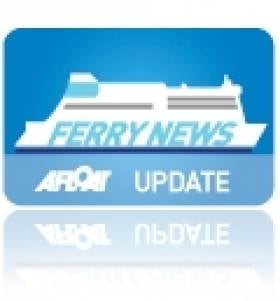Displaying items by tag: Charter Not Renewed
P&O Ferries Not to Charter Fastcraft Express in 2016
#P&OexpressCharter – P&O Ferries have confirmed with Afloat.ie that the operator is not renewing the charter of the fastcraft Express for the 2016 season, writes Jehan Ashmore.
For the last decade the 868 passenger /195 car fastcraft P&O Express has been in service on the Larne-Troon route. The seasonal-only (March-October) route operates to a schedule of two sailings departing each port.
Below is a statement issued by P&O Ferries.
We have given notice to the owners that we will not extend the existing charter arrangements of the craft after completion of the present season's service. As a business, P&O Ferries continually monitors and reviews its fleet to ensure it provides the best vessel for a given route.
Since chartering the Express in 2000, the economics of operating this fastcraft have changed and we are now looking for the best vessel to service the route. P&O Ferries is in the process of evaluating alternative tonnage for the Larne-Troon route for 2016 and we will update our staff and in turn our customers when we are in a position to do so.
Afloat.ie adds that prior to the introduction of P&O Express on the 2 hour 15 minute North Channel route, the 1998 built InCat 91m series craft was launched onto the English Channel in 2000.
In April 2005 she was transferred to the North Channel where she also operated on the Larne-Cairnryan. This shorter 2 hour route is currently served by pair of conventional ro-pax ferries.
As previously reported, the decision not to hire the 5,902 tons Express next year has impacted Isle of Man Steam Packet sailings for the 2016 TT Races. The 22.5 knot craft will not be available to the Manx operator on the Larne-Douglas route which is only operated during the annual prestigious motorcycle event.




























































